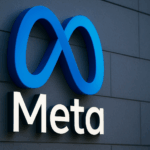A Swedish startup, IntuiCell, has developed a four-legged robotic dog named Luna that operates with a revolutionary approach to learning. Challenging traditional artificial intelligence paradigms, Luna stands on its own without pre-programmed intelligence. This distinctive methodology draws inspiration from how newborns learn, emphasizing self-directed experiential growth over fixed data input. Viktor Luthman, the CEO of IntuiCell, emphasizes that their system continues learning in real time, rather than relying on the separated stages of training and inference characteristic of most AI models.
Various research links IntuiCell’s cutting-edge AI foundation to emerging advanced learning strategies. The use of real-time, biological nervous system replication distinguishes it from prior machine learning systems that often depended on large, pre-trained datasets. It embodies an evolution from pattern recognition systems towards more autonomous learning systems. IntuiCell’s journey reflects over 30 years of research leading to this innovative development.
What Makes IntuiCell’s Approach Unique?
The uniqueness of IntuiCell’s approach lies in its continuous, adaptive learning, emulating neural mechanisms that allow for on-the-fly adjustment to new environments, echoing a biological learning process. Unlike typical AI systems that are trained with static datasets, IntuiCell’s robots, like Luna, learn progressively through interaction with their environments.
“They separate training and inference — we don’t. With us, learning never stops,” said Luthman. “We’re building the brain for all non-biological intelligence.” Such features offer substantial advantages in dynamic environments where machines must adapt and respond without pre-existing guidance or simulations.
Does Luna Herald a New Era in Robotics?
A key aspect of Luna’s technology is its non-reliance on mammoth data sets or simulations, steering away from conventional AI development paths. Luna and similar agents are designed to learn through experiences and real-world encounters in real-time. As Luthman noted, IntuiCell creates systems capable of generalizing from experience rather than following pre-set instructions. This development could potentially equip machines operating in complex fields like space exploration or disaster response with the ability to perform effectively without prior programming.
The technology employed by IntuiCell entails distributed learning, negating the need for expansive cloud resources, and supporting the potential for highly scalable, efficient applications. Luna’s functioning shows that even basic neurological functions, when adequately translated, can solve intricate problems while avoiding redundant computational burdens.
“Just a few hundred neurons were enough for our system to learn a normal engine state,” Luthman mentioned. This demonstrates the system’s capability to identify new anomalies swiftly and without external intervention. The goal remains not only to profit, but importantly to establish that these systems can address tangible problems effectively.
IntuiCell apparently stands as a contrarian force within the AI community, manifesting findings derived from a different foundational understanding of intelligence, focusing on optimized and sustainable technology. As Luna and similar robotic creations evolve, they may soon represent an essential component of AI’s tangible application in various industries.
IntuiCell’s contributions extend beyond Luna, delving into broader applications including physical and digital agents, aiming to lay the groundwork for scalable AI infrastructure that functions based on active learning assumptions. These agents, powered by the principles governing brain functionality, open countless prospects for intelligent systems’ commercial deployments in fields that traditional AI might find prohibitive or operationally intensive.
• IntuiCell’s Luna operates based on real-world learning without pre-programmed intelligence.
• Luthman believes that understanding biological learning mechanisms is crucial for AI.
• IntuiCell’s AI approach avoids dependence on large datasets, focusing on adaptability.










